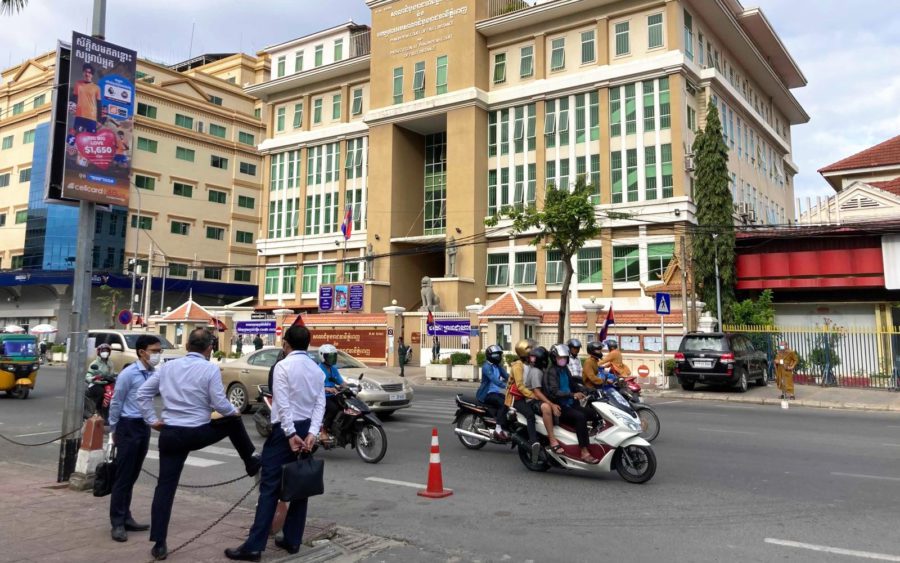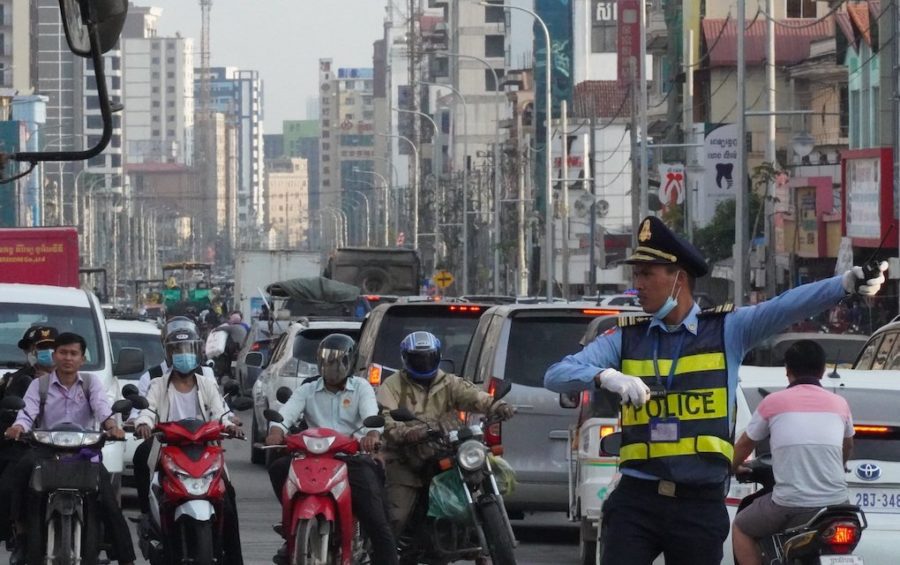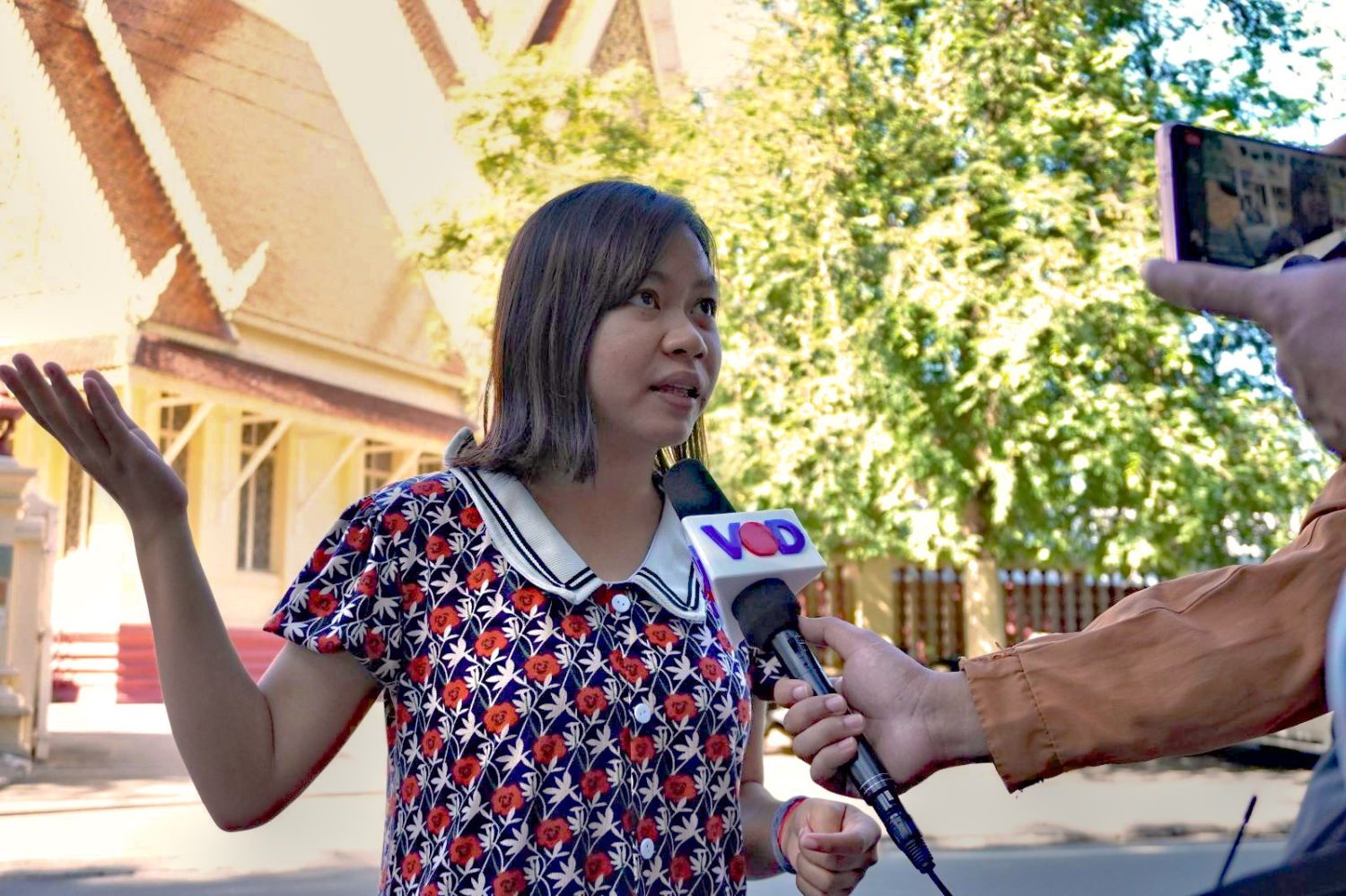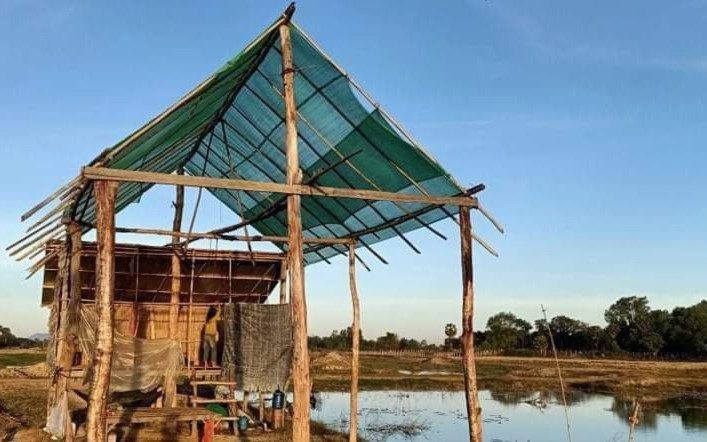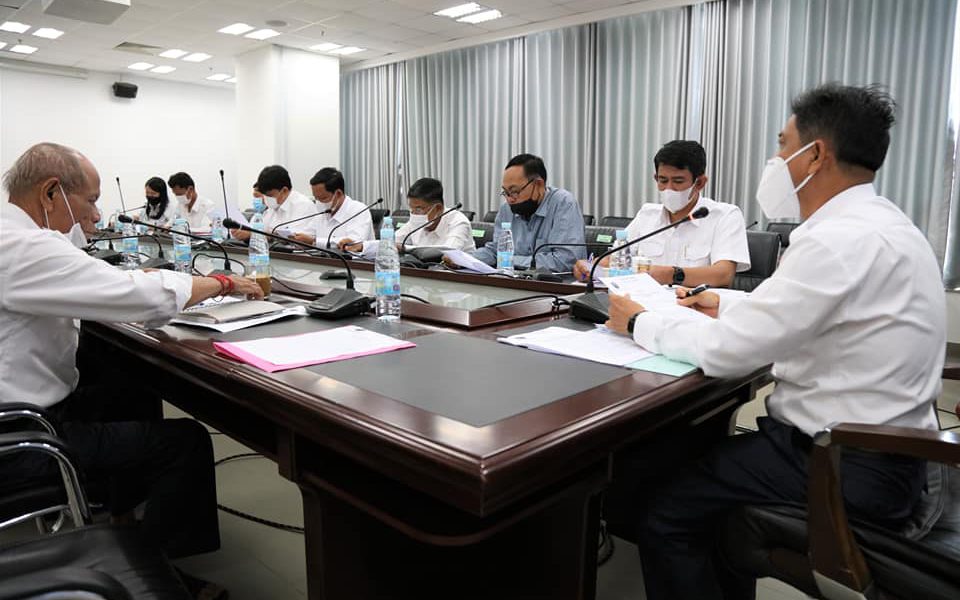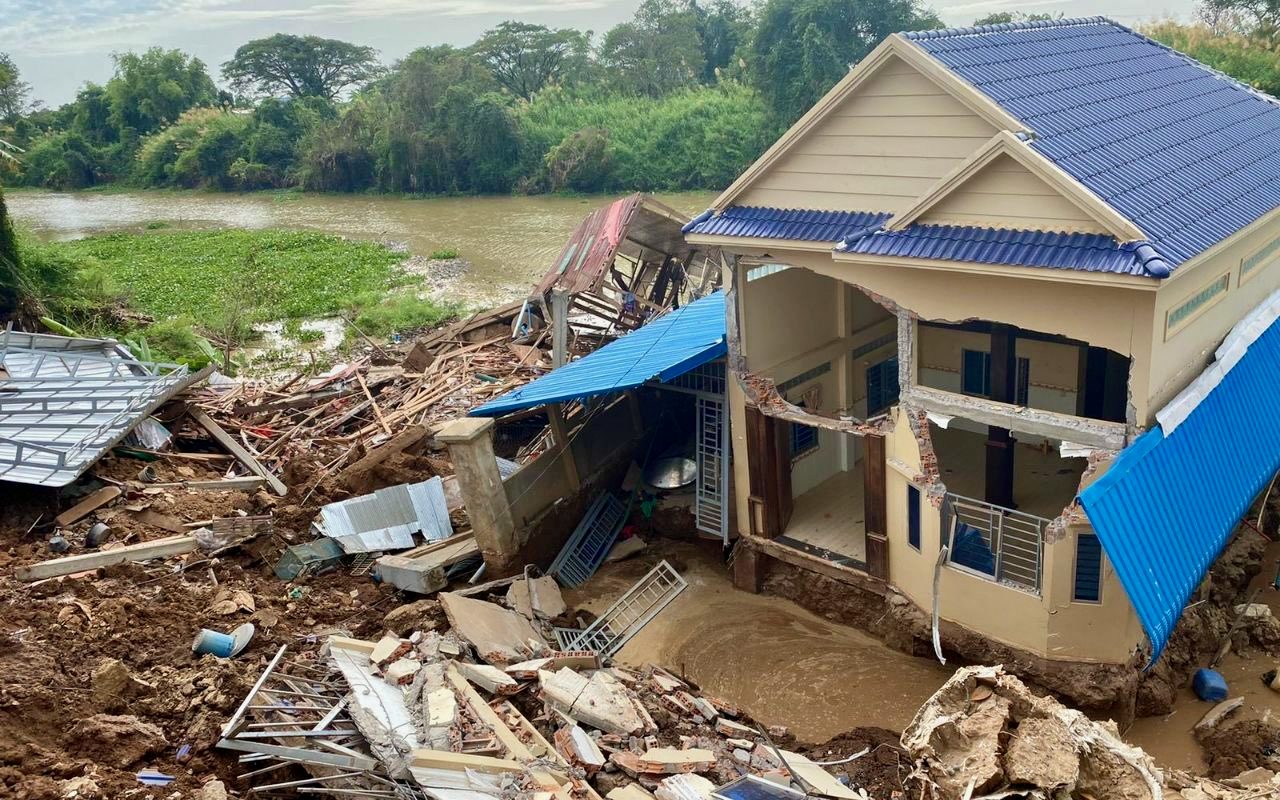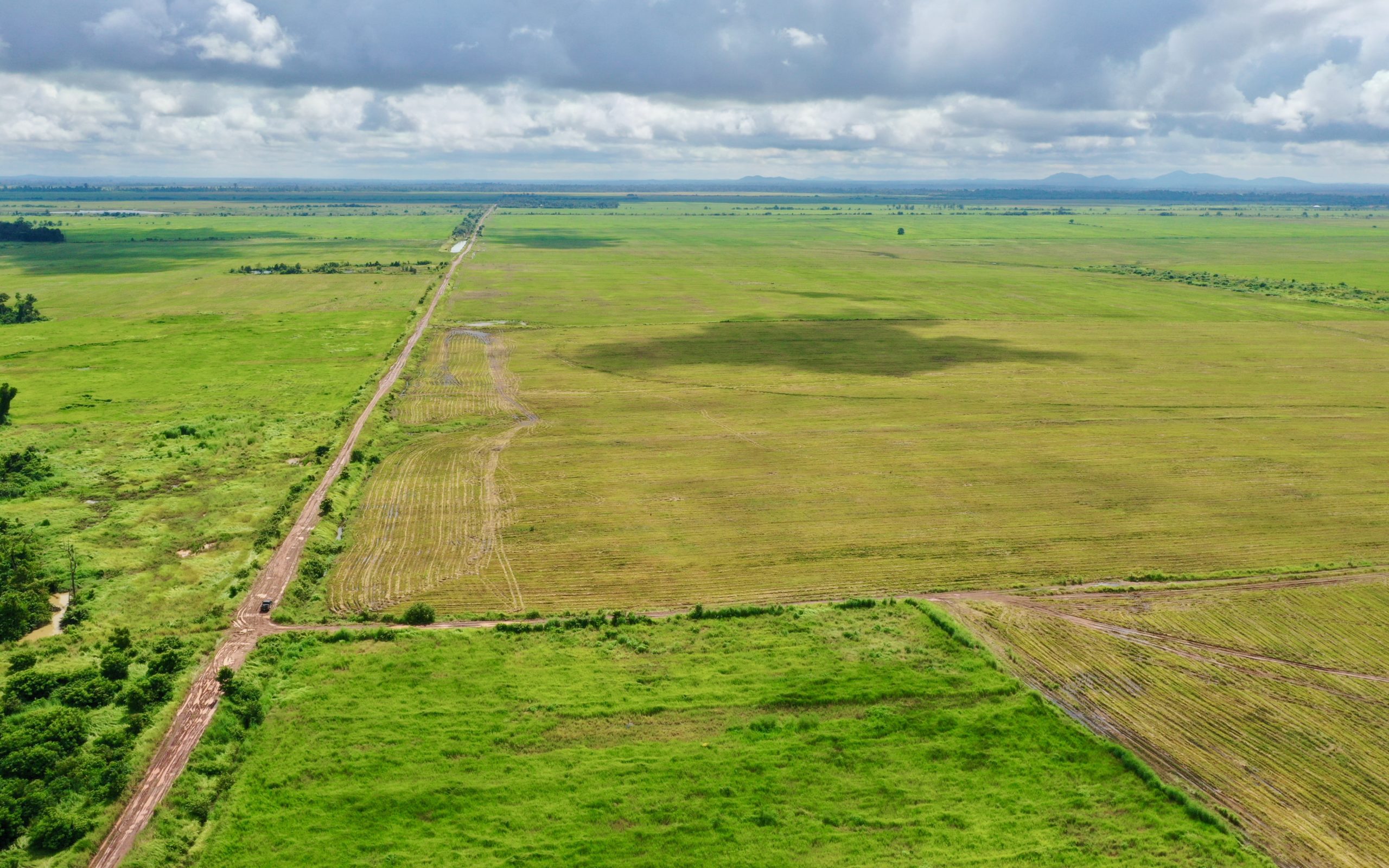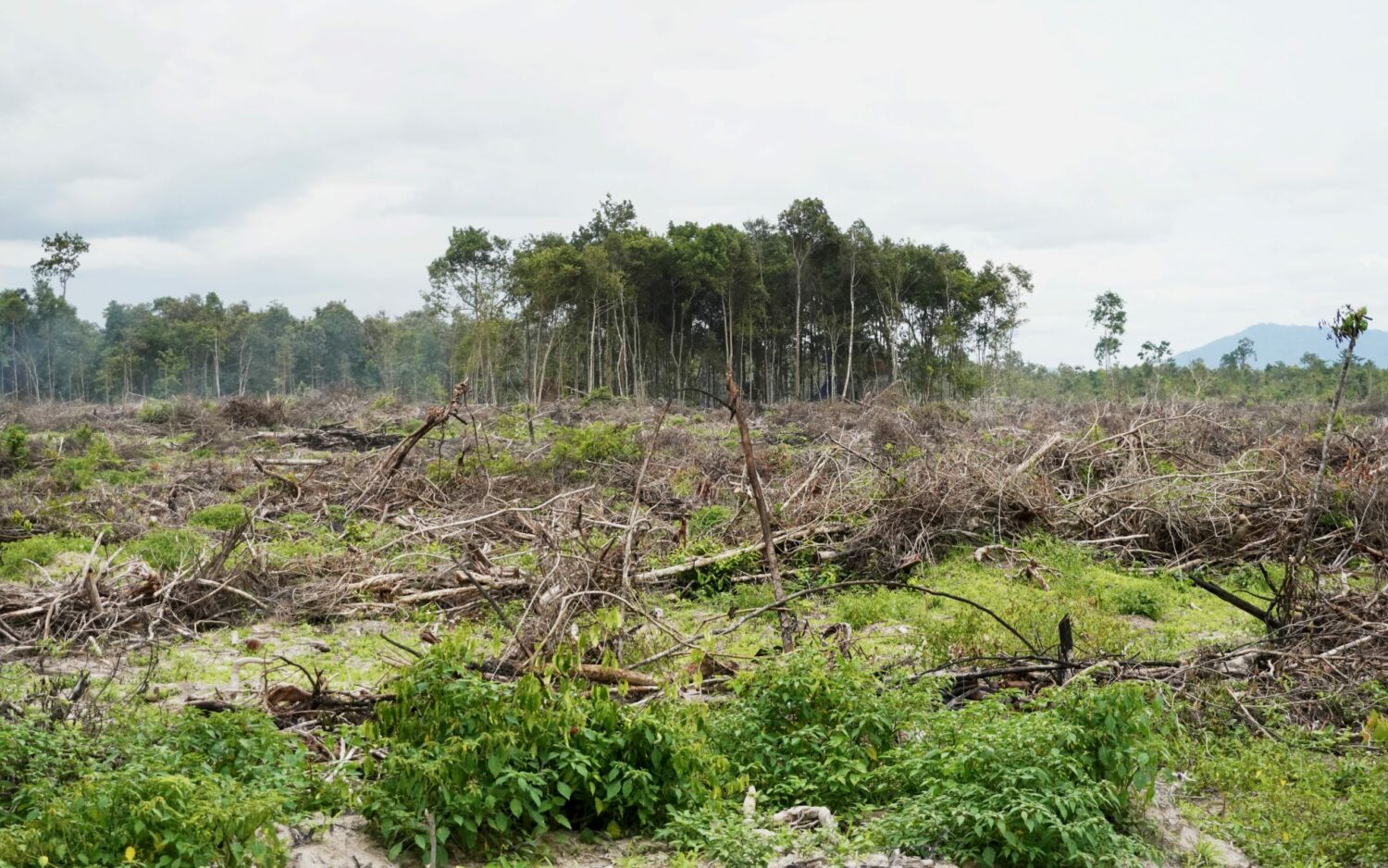After questions were raised last week about a politicized audio leak, the presiding judge of opposition leader Kem Sokha’s treason trial warned reporters they could be blacklisted if they secretly recorded court proceedings.
Government-aligned Fresh News published a recording from last week’s hearing in which Sokha distanced himself from his CNRP co-founder Sam Rainsy. The split between the two allied opposition figures has long been sought by the ruling party, and could lead to Sokha’s sole return to politics.
Attendees to Sokha’s prolonged treason trial have consistently been asked to remove phones, audio recorders and even watches before entering, and Phnom Penh Municipal Court president Taing Sunlay said last week that “next time, it might be better not to allow [reporters] to go in.”
At the case’s latest hearing on Wednesday, presiding judge Koy Sao warned that he could put reporters on a blacklist if they violated the court’s ban on taking audio recordings during the trial.
“It’s not illegal, but it’s just a violation of the court’s internal rules, and sometimes, some reporters sneak in and secretly take audio recordings and publish them for us to listen and turn to ask us why it is. We are checking for that person. If this case still happens again and again, we will put that person on the court’s blacklist and ban them from entering the court,” Sao.
“This morning, we ordered [security officials] to tighten up security more than before. Please, reporters, do not take audio recordings. You can quote and publish [instead]. That does not matter.”
Lawyer Sok Sam Oeun said audio recordings of public hearings should be allowed anyway, though some criminal cases would require permission under the law.
“What is the meaning of a public hearing? It’s that anyone can participate, isn’t it? Anyone can listen, right? If we make it public, why be scared of recordings?”
“In 1994, reporters participated fully in the courtroom,” he said. “Why did we have to change this right? This is what we’ve been saying: [it] is moving backward.”


